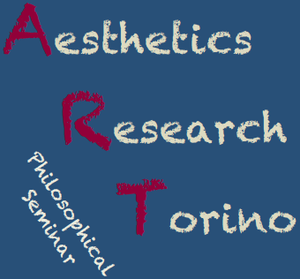Conferenza ART - María José Alcaraz León - Universidad de Murcia

ART (Aesthetics Research Torino) Philosophical Seminar
Prof.ssa María José Alcaraz León
(Universidad de Murcia)
November, 25th at 4 p.m.
Webex:
https://unito.webex.com/unito/j.php?MTID=m926c48068cdbf2c12c00da45cc0f2103
PW:7QNbPtVBb64
Imagining in Fiction beyond Make-believe
The nature and appreciation of fictional works have been prominently conceived in terms of imagination. This understanding of fiction has indirectly determined the general characterization of the cognitive value of fiction. If the appreciation of fiction is characterized in terms of make-believe, the explanation of the possible cognitive values that fiction qua fiction possesses must pay attention to the cognitive potential of make-believe.
However, imagination is not only a matter of make-believe and there are certain activities -which have not received as much as attention as make-believe- that can be properly characterized as imaginings and that are often implicitly appealed to when discussing the cognitive value of fictional works. Thus, in order to offer a comprehensive characterization of the cognitive value of fiction we should look at these other uses of imagination that cannot be fully grasped by the notion of make-believe.
In order to advance in that direction, I will address two main issues long discussed in relation to fiction and the role of imagination in its understanding and appreciation. The first one concerns the way(s) in which imagination has been thought to be involved in fictional works’ understanding. The second one has to do with the possible cognitive value that fictional works qua fictions have been often attributed and with the location of this value precisely in the imaginative activities required by fictional artefacts. So the two questions I will try to answer are: i) what kind of imaginative activities are required for properly engaging with fictional works? And ii) is there a specific cognitive value that fictions qua fictions possess? If so, how is this cognitive value related to the alleged imaginative activities involved in fictional works appreciation?
In order to provide a tentative answer to these questions, I will distinguish at least between two different forms of imaginative activity that have been often appealed to when addressing the spectator’s role. On the one hand, imagination is often conceived as a propositional attitude –make-believe- similar to believe but whose exercise does not imply actual beliefs concerning the existence of what is being presented as fiction. On the other hand, a different form of imaginative activity has been often appealed to in order to characterize the cognitive value proper to fiction (Murdoch 1997). This form of imagining can be more accurately characterized as an aesthetic ability through which we come to grasp a particular content as organized in a certain manner. I will tentatively refer to this form of imagination as iconic because what results from its exercise is a certain picture or a certain image.
María José Alcaraz León is Associate Professor of Aesthetics at the University of Murcia. Her main research interests are aesthetic normativity, art theory, art and morality, and environmental aesthetics. She is a member of the research group ARESMUR (https://www.um.es/aresmur/home/) and of the Nordic Network for Women in Aesthetics (https://sites.google.com/view/nnwa/members).
Webpage: https://webs.um.es/mariajo/miwiki/doku.php?id=inicio
ART (Aesthetics Research Torino) is a periodic philosophical seminar organized by the Department of Philosophy and Educational Sciences of the University of Turin and the the PhD Program FINO.
Coordinators:
Prof. Alessandro Bertinetto (University of Turin).
Prof. Federico Vercellone (University of Turin).
Members:
Dr. Paolo Furia (University of Turin).
Dr. Lisa Giombini (University Rome 3).
Dr. Gregorio Tenti (FINO Doctoral School).
Dr. Alice Iacobone (FINO Doctoral School)
ART addresses different topics of the contemporary debate in Aesthetics: philosophy of beauty, philosophy of the arts, theory of sensory experience, philosophy of image and imagination, and history of aesthetics.
ART is supported by:
Centro Interuniversitario di Ricerca sulla Morfologia Francesco Moiso (CIM)
Centro di Ricerca Interdipartimentale di Logica, Linguaggio e Cognizione (LLC)
Centro Studi Arti della Modernità
Centro Studi Filosofico-religiosi "Luigi Pareyson"
Laboratorio di Ontologia (Labont)
ART is sponsored by:
Italian Society for Aesthetics (SIE)
European Society for Aesthetics (ESA)




